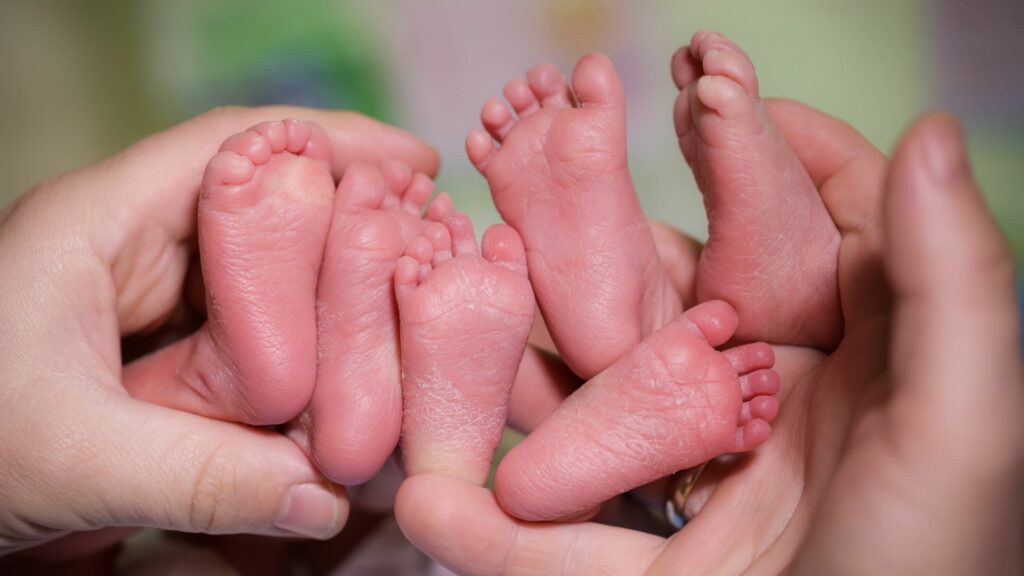The probability of identical triplets is estimated at one in a million. But as chance would have it, one such birth recently make headlines in the US, with a couple in Limburg then giving birth to another set of identical triplets the very next day.
On 29 August, Hafid Atouilli (41) and his wife Sihame (37) became proud parents of Hafsa, Houda and Hiba – identical girl triplets. The couple, who live in Hamont (Limburg), already had two sons aged 17 and 13 and a 20-month-old daughter. "We wanted a playmate for her and with four children our family would have been complete, but things turned out differently."
It came as a complete surprise when the couple found out that they were having triplets earlier this year: "We burst out laughing because we were in shock. We were not expecting this, although there always seems to be a hereditary factor involved. I am a twin myself," Hafid told Het Laatste Nieuws. His great-grandmother apparently also had triplets.
Unique birth with unique risks
"With identical twins, we are already very wary because we know they can pose many complications. With identical triplets, that risk is even higher," noted Dr Tinne Mesens, gynaecologist at Ziekenhuis Oost-Limburg in Genk, adding that she had never come across a natural conception of identical triplets.
"There is a chance of miscarriage or premature birth. Identical triplets share one placenta and also share blood vessels. Therefore, they have an increased risk of twin transfusion syndrome where one baby would give blood to the other. At 29 weeks, we therefore pre-emptively admitted her to monitor the babies more closely."
The girls were delivered by Caesarean section at 31 weeks of pregnancy, on 29 August, with one doctor and two midwives for each baby and a total of 15 people were present in the operating theatre. "It went smoothly, but it was exciting!" Dr Mesens enthused.
'Three little hearts'
Despite the high-risk pregnancy, the three children were born healthy and weighed between 1.5 and 1.6 kilograms. "Because it is something special, we chose special names: Hafsa, Houda and Hiba. We called them our three little hearts," Sihame beamed.
She can tell them apart for the moment, but admitted to Het Belang van Limburg that she does sometimes hesitate. "Outwardly, they look incredibly similar: if you've seen one, you've seen them all. So we left their name bands from the hospital on just to be sure."
She has already noticed differences in character, however: "Hiba, for instance, is very quiet, sleeps a lot and is easily satisfied. The other two make themselves heard more easily."
Related News
- Belgium to invest €10 million in natal care for vulnerable mothers
- Belgian startup uses AI to identify sepsis in premature babies
The triplets were monitored in incubators for weeks in Genk after the birth and have only been home since Monday, as Houda needed a course of antibiotics when she fell ill. The girls have otherwise made a good start, however, and are happy and healthy.
Last year, a mother from Riemst (Limburg) also gave birth to identical triplets through IVF, but sadly one baby had already died in the womb at the time of birth.

